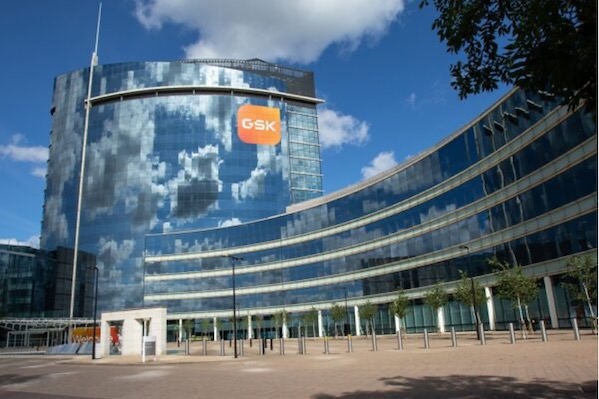FDA Approves GSK Myelofibrosis Med That Has Edge Over Others in Drug Class
September 19, 2023
Source: drugdu
 513
513

Myelofibrosis can already be treated with several drugs from a class of medicines that address a pathway driving this type of blood cancer. A drug from GSK is now the latest entrant into the class, but with an additional component that specifically treats the anemia complication affecting myelofibrosis patients.
FDA approval of GSK’s momelotinib covers the treatment of adult myelofibrosis patients regardless of whether or not they have been previously treated with another drug for the cancer. The regulatory decision announced late Friday marks the payoff for the pharmaceutical giant’s bet on a molecule it acquired in a $1.9 billion deal. The GSK drug, known in development as momelotinib, will be marketed under the brand name Ojjaara.
In myelofibrosis, inflammation and scar tissue (fibrosis) impair the bone marrow’s ability to normally produce red blood cells. The disease leads to anemia, which must be treated with regular blood transfusions. Other complications include fatigue, night sweats, bone pain, and an enlarged spleen. Myelofibrosis affects about 25,000 patients in the U.S. According to GSK, about 40% of myelofibrosis patients have moderate-to-severe anemia at the time of their diagnosis and nearly all of them will develop anemia over the course of their disease.
Myelofibrosis is associated Janus kinase (JAK) proteins, proteins whose dysregulation plays a role in inflammation and some cancers. Incyte’s Jakafi was the first JAK inhibitor approved for myelofibrosis, winning its FDA nod in 2011. In 2019, the agency approved Inrebic from Bristol Myers Squibb. CTI Biopharma’s Vonjo, yet another JAK inhibitor, won its approval last year. CTI was acquired by Swedish Orphan Biovitrum for $1.7 billion earlier this year.
Ojjaara is a once-a-day oral small molecule designed to block two Janus kinase (JAK) proteins whose dysregulated signaling drives myelofibrosis progression. The drug also blocks another protein, A receptor type 1 (ACVR1), also called activin receptor-like kinase-2 (ALK2). GSK said blocking this third target reduces levels of hepcidin, a hormone that regulates how the body uses iron. In myelofibrosis, hepcidin levels are elevated, contributing to anemia.
FDA approval of Ojjaara is based on the results of two Phase 3 clinical trials. One study enrolled patients previously treated with a JAK inhibitor. Results showed statistically significant reduction in myelofibrosis symptoms, shrinking in spleen size, and transfusion independence. In a separate Phase 3 test that evaluated the GSK drug in patients naïve to JAK inhibitors, the FDA reviewed the safety and efficacy results for the subset of patients who have anemia. In both studies, the most common adverse reactions were low platelet counts, bleeding, bacterial infection, fatigue, dizziness, diarrhea, and nausea.
Ojjaara is a well-traveled molecule. The drug was initially developed by YM Biosciences, which was acquired by Gilead Sciences in 2012. Under Gilead, the drug’s mixed Phase 3 results led the pharmaceutical company to stop work on the molecule. Sierra Oncology acquired the program in 2018; a new Phase 3 study showed achieved goals of showing improvement in myelofibrosis symptoms and reduction in spleen size. Those results were better than Incyte’s Jakafi, a drug that accounted for $2.4 billion in revenue last year across its four approved indications. Months after Ojjaara’s Phase 3 results were reported last year, GSK reached a $1.9 billion deal to acquire Sierra.
According to Ruben Mesa, president and executive director, Atrium Health Levine Cancer Center and Atrium Health Wake Forest Baptist Comprehensive Cancer Center, Ojjaara has the potential to establish a new standard of care for myelofibrosis patients.
“Addressing key manifestations of myelofibrosis, including anemia, constitutional symptoms and [enlarged spleen], makes a significant difference in the treatment regimen for these patients who have limited options to address these aspects of the disease,” Mesa said in a prepared statement.
There are others aiming to improve on or provide an alternative to JAK inhibitors for myelofibrosis. Merck’s bomedemstat addresses a different target and is in mid-stage clinical development in patients whose disease has not responded to JAK inhibitors. The small molecule came to Merck via the pharma giant’s acquisition of Imago BioSciences. MorphoSys’s contender is pelabresib, a small molecule that takes an epigenetics approach to myelofibrosis.
Source:
https://medcitynews.com/2023/09/fda-drug-approval-gsk-myelofibrosis-jak-inhibitor-ojjaara/
Read more on
- The first subject has been dosed in the Phase I clinical trial of Yuandong Bio’s EP-0210 monoclonal antibody injection. February 10, 2026
- Clinical trial of recombinant herpes zoster ZFA01 adjuvant vaccine (CHO cells) approved February 10, 2026
- Heyu Pharmaceuticals’ FGFR4 inhibitor ipagoglottinib has received Fast Track designation from the FDA for the treatment of advanced HCC patients with FGF19 overexpression who have been treated with ICIs and mTKIs. February 10, 2026
- Sanofi’s “Rilzabrutinib” has been recognized as a Breakthrough Therapy in the United States and an Orphan Drug in Japan, and has applied for marketing approval in China. February 10, 2026
- Domestically developed blockbuster ADC approved for new indication February 10, 2026
your submission has already been received.
OK
Subscribe
Please enter a valid Email address!
Submit
The most relevant industry news & insight will be sent to you every two weeks.



